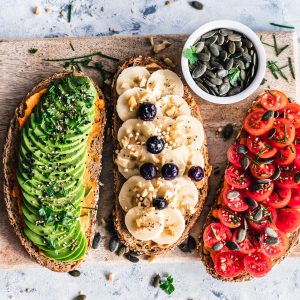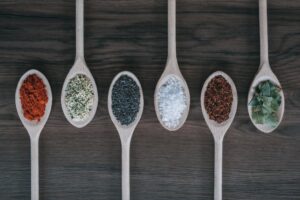
Today I’m sharing information about something delicious and timeless! Recently I purchased two raw organic honeys, one Canadian, the other from India, and it inspired me to describe why it is a useful ingredient for your inner and outer body.
Why Quality Matters
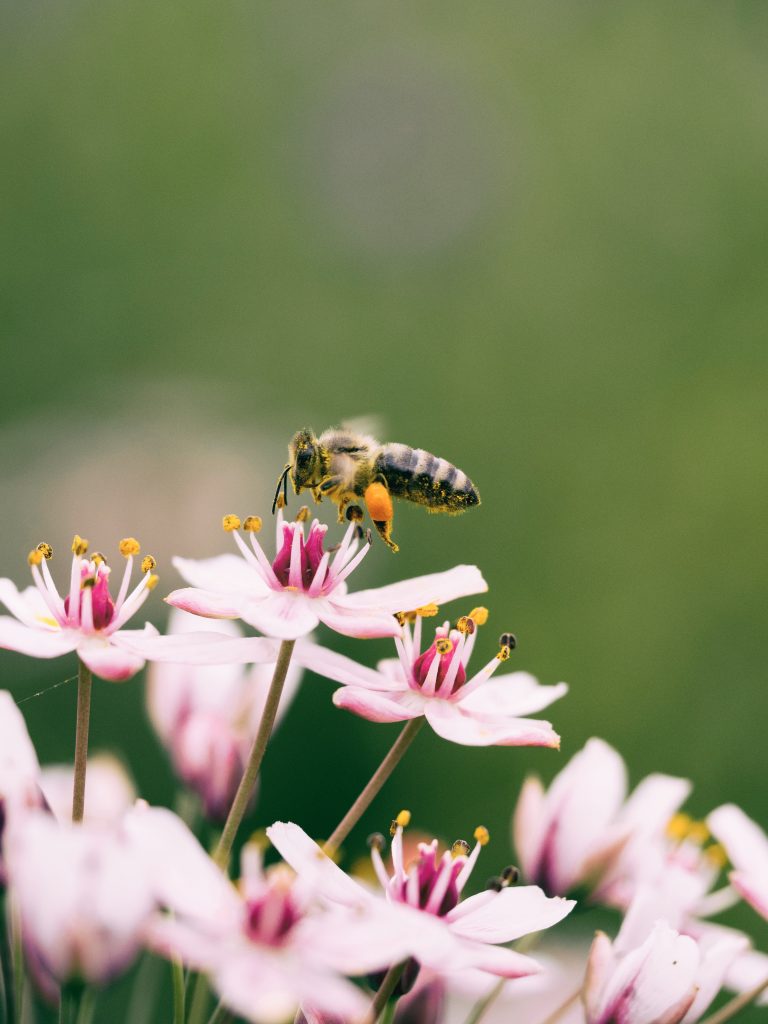
What’s the big deal with raw honey, except for it being more expensive and looking a little murky? Unpasteurized honey is a crude product- it has not been heated or cooked, and it is normally not as finely filtered, giving it a clouded or opaque look. Because this honey has not been cooked, it will retain its many micronutrients, minerals, some pollens and propolis (a resinous mixture of beeswax and saliva from bees, to build their hive), phytonutrients, antioxidants and other beneficial microbial constituents. A batch of honey will change every season depending on the flora available in a particular region that the bees have access to for pollination. This is why batches of honey, beeswax, mead and other products that bee farmers sell can vary in taste, colour or other traits each year.
Blood Sugars and Bodyweight
Honey is a health-promoting alternative to other sweeteners such as corn syrup, refined sugars, agave and artificial or synthetic sweeteners. Most studies around weight regulation and blood sugar balancing have compared honey to sucrose derivatives. So, in comparison to sucrose in both human and rat trials, raw honey was shown to prevent weight gain and raised blood sugar levels after meals over time, as well as shown to lower serum triglycerides (fats circulating in blood, later to be stored and then used for energy).

Normally when my clients live with diabetes, pre-diabetes, insulin sensitivity or fatty liver disease, I do not recommend the use of any sweeteners whatsoever. It is important to consume carbohydrates from whole unprocessed food sources, such as fruit, root vegetables, vegetables, nuts and so forth. However, raw honey used alongside cinnamon and other spices may be a good sweetener alternative when used in small amounts on occasion.
Also in comparison to the consumption of sucrose, raw honey was shown to delay the activation of hunger hormones such as ghrelin and insulin, again regulators for blood sugar levels and providing a feeling of satiety. And although sucrose may be used to meet caloric needs, honey is able to better satisfy the body by providing essential and non-essential nutrients such as antioxidants, vitamins and minerals. It is a usable form of energy that burns cleanly and easily by the liver in the form of glycogens (a polysaccharide of glucose) when blood sugar levels are low. This is why I believe it to be a preferable form of energy in homemade pre- and post-workout beverages, especially in comparison to the workout products available on the market today that are often full of synthetic sweeteners and sucrose.
Digestion and Immune Health
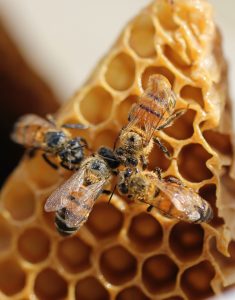
Stock-full of complimentary enzymes and co-factors, raw honey can facilitate digestion, as well as relieve symptoms of nausea and indigestion (especially when mixed in warm water with things like ginger, lemon or even marshmallow root for acid reflux). Although it contains anti-microbial and anti-fungal qualities, it also hosts a number of beneficial probiotics that will be most welcome by your gut’s microbiome!
Raw honey is stock-full of a variety of beneficial antioxidants such as polyphenols. These prevent free radicals and oxidative stress from running rampant in the body. These unstable compounds, when left unchecked, can damage healthy cells and compromise their function. Polyphenols and other antioxidants have even been shown to promote apoptosis and prevent cancerous cells from developing and propagating.
Using honey when you are sick or are bothered by seasonal allergies and allergic rhinitis (hay fever) is not just an old folk remedy promoted by your grandmother. Sore throat, sinus congestion, cough or phlegm from a cold? Raw honey has natural astringent and anti-inflammatory qualities that can reduce mucus secretion and relieve coughing and irritation of mucosal membranes. If you are able to purchase raw honey that is local to your region, consuming a teaspoon or two every day prior to the time you normally develop seasonal allergies could help to build some immunity to local fauna in your region. It is especially beneficial to use honey that contains the pollens from these neighbouring plants. I suggest consuming this with some stinging nettle tea, a plant also used for mitigating seasonal allergies.
Skin Health
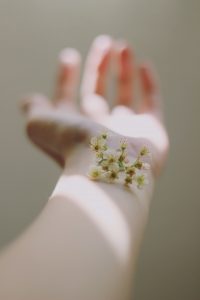
Where are all my DIY fans? I love making homemade remedies and all-natural body care products (examples: check out my store page). Obviously, raw honey is one of my favourite ingredients to use, because when applied topically it creates an inhospitable environment for bacteria and fungi. This is the ideal function for treating simple wounds, rashes, some types of ulcers as well as minor burns or irritations such as bug bites. It is a gentle skin cleanser and exfoliator for all skin types, so check out some online recipes for caring for your skin if you are prone to acne, dryness or redness, rashes and acne.
It additionally hydrates and adds shine to hair, and is excellent for dandruff when applied as a hair mask. For dandruff in particular, I love to use ingredients such as Neem extract, apple cider vinegar and a bit of warmed honey and olive oil to nourish, cleanse and treat the scalp. Neem is an exceptional plant that holds strong anti-fungal and anti-bacterial properties, and so gentle for skin and mucosal membranes. Keep a lookout for my future post on Neem, the plant-love of my life!
Sleep
Sometimes my clients have trouble sleeping because they do not have enough glycogen stored in the body to readily use overnight, causing them to wake up or have a restless or shallow sleep. This is largely attributed to either not getting enough caloric intake through nutrient-dense whole foods for their body’s daily needs, or because their blood sugars are not well regulated (such as with insulin sensitivity, pre-diabetes, etc).

Raw honey can assist sleep in some cases, by restoring the liver’s easily accessed supply of glycogen and promoting the production of melatonin (eating honey will trigger insulin, then cascade to activating tryptophan in the brain, then convert into serotonin, then melatonin). Side note, melatonin assists in improving immune functions, healing and tissue restoration while we are sleeping- cool, huh?
My favourite ways to consume honey to promote sleep is exactly what many of you used to have as children- warm milk with honey. A timeless classic! I normally make a warm cup of golden mylk (coconut or other nut/seed milk, turmeric, ginger, cinnamon, black pepper, cardamom, a drop of raw honey) or just a simple herbal tea such as chamomile, lavender, mugwort, passion flower or vervain with some honey. These are like friendly hugs before bed.
Be my honey bee
Thank you for reading this blog post! As a last note, I want to emphasize the importance of purchasing from local farmers, as possible. By purchasing products from local bee farmers, you are not only supporting your local economy, but also your local ecology and its biodiversity! And hey, if finally raw honey isn’t your cup of tea, why not grow some bee-friendly flowers and wild flowers in your garden? Let’s support these precious pollinators and the health of our communities.
Here’s a fantastic resource page for exactly this, by the David Suzuki Foundation in Canada: Link
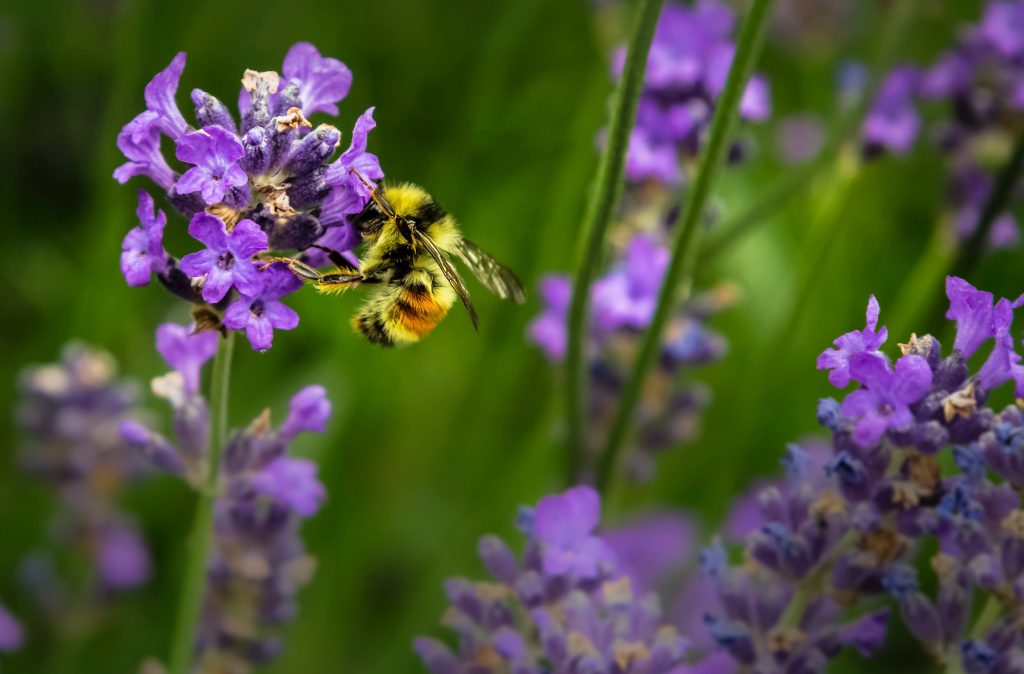
Source
This article was originally published on my other website, over at Arbor Holistic Coaching. You can visit the original article here: https://www.arborholistic.com/writing/allabouthoney





